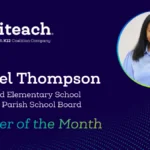Navigating Your Emotional Response to Failure
What if we could remove the stigma around failing? What if we reframed failure in our own minds as just part of the process to success? While I’ve read a number of articles about failure and success, rarely do people consider the fact that because we are all created differently, many of us handle failure in different ways. It’s as if the articles are written to individuals who all see the world the same way. The mentality is, “If I can do it, you can do it, and it needs to be done this way.” But what is there is a different approach that can help you along your path to success that isn’t a one-size-fits-all approach?
I am a student of the Enneagram. If you aren’t familiar with the Enneagram, it is a personality test and is defined by Truity.com as: “The Enneagram is a system of personality typing that describes patterns in how people interpret the world and manage their emotions. The Enneagram describes nine different personality types and maps each of these types on a nine-pointed diagram which helps to illustrate how the types relate to one another. The name Enneagram comes from the Greek: Ennea is the Greek word for nine and Gramma means something that’s drawn or written.”
Our personalities determine how we respond to things. For me, as a Seven on the Enneagram, I enjoy taking risks, but a Six on the Enneagram is risk averse, while a One on the Enneagram is often open to taking risks, and often succeeds at new challenges, but still feels like a failure because of an internal voice, often called the “internal critic”, which pushes the person and says, “That’s not enough.”
So what is my point in all of this? Well, before you start pushing yourself and determining what is success and what is failure, understanding your personality type will be a great foundational tool for helping you navigate your emotional response to failure.
Resilience: The Art of Failing Forward
“In this talk, Sasha covers how when we are vulnerable in sharing our professional (and personal) failures, we become more resilient. We allow ourselves to learn from our mistakes, we open diversity in solutions by talking to others, we avoid failure blindness, and we release self-shame. She discusses how perfectionism leads to burnout, through our inability to accept that failure is part of growth. This talk will encourage resilience and inspire the audience to see failure as a path to resilience.” – Ted Talk
I love this talk because it shows the importance of admitting failure. By admitting failure doctors can save lives. It can be easy for a business to want to cover up failure to keep themselves from looking bad, or possibly losing millions of dollars in law suits. However, admitting failure can be a catalyst for necessary change. We learn from our mistakes and then we move forward.
Resilience: The Art of Failing Forward
Based on what I know about myself and my experience with friends, a big reason why people don’t like admitting failure is because of the perception of others. The fear of what other people will think about them. According to a paper entitled “The Overblown Implications Effect” people often perceive that they are being judged harshly by others when they fail. No one likes to be judged harshly or be seen as “less-than” by others. But in reality, what does what other people have to think about us really matter?
Three Sure-Fire Ways to Eliminate Criticism in Your Life
According to an article in the Chicago Tribune, “There are three sure-fire ways to eliminate criticism in your life: be dreadfully normal; do not take any risks whatsoever; and do your best to sacrifice what is special and unique about yourself in order to blend in as much as possible. Of course, this is clearly not the recipe for living your best life. You cannot avoid criticism but you can learn to live with it and not allow it to have such a grip on your life — in other words, you can get to the point where you care so much about yourself or your idea that you’re not sidelined by a critical comment, negative review or raised eyebrow.
The Road Back to You
If you want to learn more about the Enneagram and the personality types, then check out a great book called, “The Road Back to You” written by Ian Morgan Cron. This book goes into detail about the nine personality types that shape who we are. If you want to take a quick free test, check out EnneagramTest.net and if you want to really dig into the personality types, check out EnneagramInstitute.com. On the Enneagram Institute website you can compare relationship types and see where your relationship and the Enneagram numbers intersect.
If you are in a relationship, it is great for understanding how you interact with your partner. But, these relationship types are also very telling about our friendships. I find that most of my closest friends are Ennagram Ones, Threes, or Eights. Apparently certain numbers mesh well together, while others can be double-negatives and just because of the way that people are wired they are going to see the world so differently that it will be hard for these types to easily get along.
So as you are navigating your life, understanding how you respond to criticism and failure can help you reframe what failure really is – just a step to success. Without failure how can you know if you are really pushing yourself to your maximum potential?
Become a Teacher. Change Lives.
If you are passionate about impacting the world around you there are few places where you can influence the future as much as a teacher. Teachers have the ability to build students up and set them on a positive course that can have a ripple effect for future generations.
If you are interested in becoming a teacher, check out our online teacher certification process and you could be teaching in a matter of weeks.





